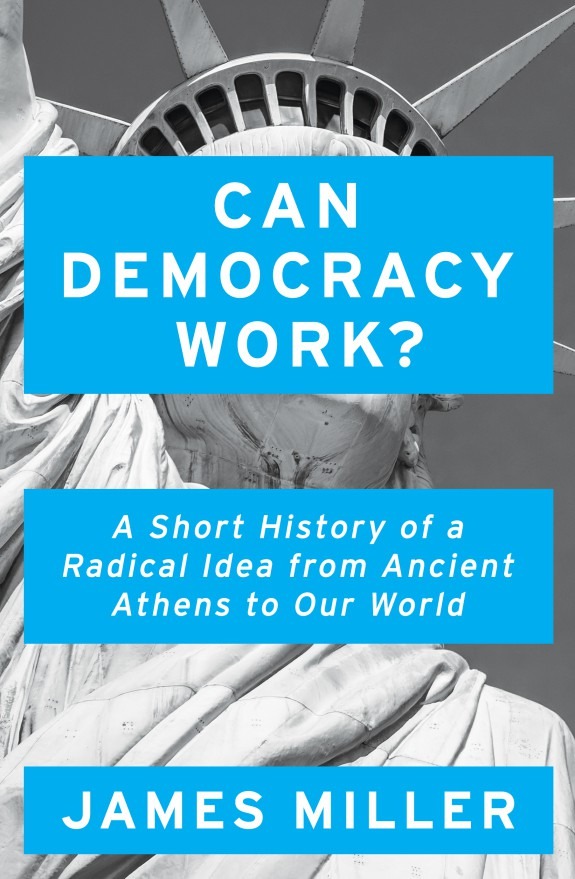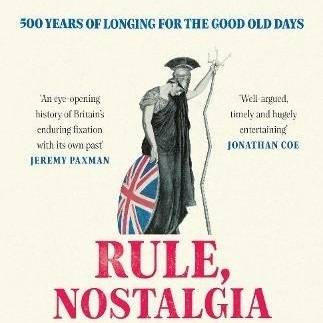
Democracy is widely regarded as the ideal form of government. In practice, however, we are living in an era where, the world over, trust in elected representatives is plummeting. Democracy is sometimes seen as a sham, a political puppet show in which hidden elites pull all the strings. In his latest book, "Can Democracy Work" (Oneworld), James Miller - professor of politics and liberal studies, and faculty director of the MA in creative publishing and critical journalism at the New School for Social Research - maps out the history of democracy. He shows that the concept has always generated tensions and contradictions, and reminds us that the very meaning of democracy has changed dramatically over the two thousand years since it emerged. So can it work?
Why write this book now?
I have been teaching about, and studying, the history of democracy for more than 40 years. In the 1980s, I published two books on the topic, one about Jean Jacques Rousseau and his influence on the French Revolution, the other on the idea of "participatory democracy" as a rallying cry for young American radicals in the 1960s.
In the past few years, several people had been asking me to return to the subject, and write a short history of democracy, notably Astra Taylor, a former student who was working on a documentary film about democracy, now out, entitled What is democracy? In the summer of 2014, I was also dismayed by developments in Europe when I visited Prague; Wroclaw, Poland; and Dresden, Germany -- in all three cities, nationalist parties espousing a very narrow view of democratic citizenship were on the march. At the same time, I met students from Ukraine who had participated in the Maidan uprising in Kiev, demanding a more liberal and democratic society. So clearly democracy, especially in its liberal form, had become an embattled idea. And this made me interested in taking up the challenge of writing a short, summary account of democracy and its manifold problems as these have appeared in various historical contexts.
You note that countries around the world – from Vladimir Putin in Russia to Kim Jong-un in North Korea – pay lip service to democracy. Why does the idea have such currency?
After World War II, most surviving regimes claimed to represent the will of a sovereign people - this was certainly true of the Soviet Union and North Korea, but also of course it was true of the United States and the United Kingdom. Despotic monarchies and totalitarian tyrannies were widely seen as illegitimate. That is why the United Nations Declaration of Human Rights affirms that "everyone has the right to take part in the government of his country."
You start by drawing a distinction between democracy and liberalism. Could you explain?
Modern democracy hinges on the right to take part in government, and is based on some idea of popular sovereignty. Modern liberalism grows out of a revulsion against the violence of the French Revolution, which put democracy on the agenda of modern politics. Modern liberals vary in their positive views, but some stress free markets as a check on government power; other stress juridical limits on state power; while still others looking to a powerful administrative state to curtail the excesses of raw capitalism, as an antidote to revolutionary forms of democratic socialism and communism.
How has the meaning of democracy changed over time?
The core of its meaning - literally, in the Greek, people power - hasn't changed much at all. But what the power of a people in practice means has varied quite a bit. In ancient Athens, ordinary citizens governed the city directly in regular popular assemblies, and staffed up the administration and justice systems through random selection by lot. In modern democratic societies, citizens characteristically get to choose periodically among professional politicians, and in some societies they also have a right to free speech, and to protest peacefully in between elections.
How does democracy slip into despotism?
The ancient authorities, Plato for example, assumed ordinary people would attempt to redistribute the wealth of richer citizens, which in fact happened to some extent in ancient Athens - they feared that ordinary people, as a group, could exercise a kind of tyranny over those who were wealthier and better educated. They also feared that ordinary people would rally around a popular leader (or "demagogue"), who might gradually assume tyrannical powers, though such powers were in fact quite difficult to obtain in ancient Athens. In modern democracies, unfortunately, it is easier for a single person, even if democratically elected by the people, to try to usurp the powers of legislatures and courts - this is the threat we currently see in countries as different as Hungary, Poland, the United States and Brazil.
What are some of the most common misconceptions about democracy?
In the UK and US, many people simply assume that liberal and democratic institutions and norms are mutually reinforcing, rather than standing in tension, if not contradiction. After the collapse of the Soviet Union, a lot of people also assumed that liberal democracy is the logical end of political history, and that the world was on the right political path. Those assumptions were obviously mistaken.
How would you view the election of Donald Trump in relation to modern democracy?
It is a notable irony of the American situation that Donald Trump became President because of the most undemocratic feature of the US Constitution (which was designed specifically to thwart majorities, and limit the power of ordinary citizens): the Electoral College. He was not supported by the majority of Americans who voted in 2016. In that sense, Trump lacks the kind of democratic legitimacy enjoyed by the current rulers of Poland, Hungary and Brazil.
What about Britain’s Brexit vote?
This will surely go down in history as one of the biggest political blunders and unforced errors made by a duly elected Prime Minister. Why would an avowed conservative like David Cameron think it wise to ask ordinary citizens to vote on a complex and fairly technical policy matter in an up or down referendum vote? His was the hubris of a technocratic liberal, a professional politician who in fact holds ordinary people in contempt, and therefore assumes they will follow the lead of elite opinion. Oops.
You talk about “new ways” in which democratic systems (and people’s faith in them) might be restored. What might those new ways look like?
What I wrote in my book was that "we should explore new ways to foster a tolerant ethos that accepts, and can acknowledge, that there are many incompatible form of life, and forms of politics, not always directly democratic or participatory, in which humans can flourish." It was a bit of a wan prayer, to be honest. But I also meant to suggest that the modern faith in democracy is sometimes otiose, even perverse. It should be tempered by a certain humility, and sense of "the enigma of life," as Vaclav Havel once put it. We shouldn't let democracy be turned into a pseudo-scientific utopia.
Are you optimistic for the future of democracy?
My outlook is perhaps best summed up in a phrase of Romain Rolland, repeated by Gramsci in his prison writings: "pessimism of the intellect, optimism of the will."

